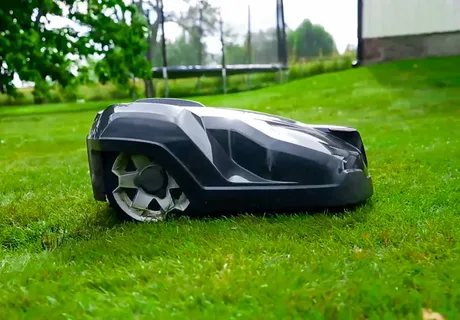In recent years, auto mower have gained popularity as a convenient and efficient way to maintain lawns. These robotic lawnmowers promise to save time and effort, but it’s important to consider the environmental impact of auto mowers before fully embracing this technology. This article explores the various environmental factors associated with the use of auto mowers and offers insight into how they compare to traditional lawn care methods.
What Are Auto Mowers?
Auto mowers, also known as robotic lawn mowers, are autonomous devices designed to cut grass without human intervention. Equipped with sensors and programmed to navigate a lawn, these machines work quietly and continuously to keep grass trimmed. They run on rechargeable batteries, eliminating the need for gasoline-powered engines found in traditional mowers.
Environmental Benefits of Auto Mowers
One of the primary advantages of auto mowers is their potential to reduce carbon emissions. Traditional gas-powered lawnmowers release pollutants such as carbon monoxide, nitrogen oxides, and hydrocarbons into the atmosphere. In contrast, the environmental impact of auto mowers is considerably lower because they operate on electricity, which can be sourced from renewable energy.
Moreover, auto mowers often trim grass more frequently but in smaller amounts, which can promote healthier lawns and reduce the need for chemical fertilizers and pesticides. This contributes to less environmental contamination and improved soil quality.
Potential Environmental Concerns
Despite their advantages, there are some environmental concerns related to auto mowers. The production and disposal of batteries used in these devices pose challenges due to the mining of rare metals and potential toxic waste. Additionally, the frequent operation of auto mowers could potentially disturb local wildlife habitats, especially in areas with birds, insects, and small mammals.
Comparing Auto Mowers to Traditional Lawn Mowing
When considering the environmental impact of auto mowers, it is crucial to weigh their benefits against traditional lawn care methods. Gas-powered mowers typically consume fossil fuels and emit pollutants directly, contributing to air pollution and climate change. Electric auto mowers, powered by clean energy, present a more sustainable option with significantly lower emissions.
Furthermore, auto mowers’ quieter operation reduces noise pollution, creating a more peaceful outdoor environment for both humans and wildlife.
Conclusion
Auto mowers represent a step forward in environmentally friendly lawn care. By significantly reducing emissions and noise pollution, they help mitigate some of the negative effects associated with traditional mowing. However, attention must be given to battery sustainability and the impact on local ecosystems. Overall, understanding the environmental impact of auto mowers allows consumers to make informed decisions that balance convenience with ecological responsibility.


